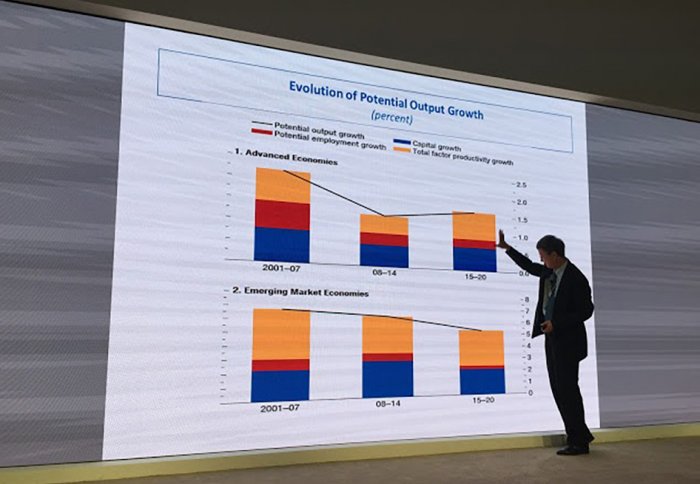Outstanding young scientists participate in World Economic Forum meeting

Dr Kirill Veselkov and Dr Jia Li nominated and successfully selected to join the World Economic Health Young Scientist programme in China
Each year, the World Economic Forum selects 40 outstanding young scientists from around the world to participate alongside global business and political leaders in the Annual Meeting of the New Champions. These scientists are selected from a wide range of disciplines and deliver updates on the latest trends and developments from various branches of science.
This year, Dr Kirill Veselkov and Dr Jia Li were nominated and successfully selected to join the Young Scientist programme in China. Both attended the Annual Meeting of the New Champions, which took place from 9 to 11 September in Dalian, People’s Republic of China.
Dr Kirill Veselkov, Lecturer in Computational Medicine, said ‘The event was truly impressive, and was attended by high profile guests from all key stakeholder groups in translational science including senior statesmen, policy makers, entrepreneurs and scientists, regulatory organisations and publishing groups. The panel sessions and live debates were very interesting and showcased the work of the brightest young scientists in the world. The meeting was also a fantastic opportunity for me to expand my network of international collaborators for the future.
Dr Jia Li, Lecturer in Computational Medicine wrote: "I was really honoured to be selected to attend this Annual Meeting and it was a fantastic and unforgettable experience. The format of the meeting was dynamic and interactive. As a basic scientist working in biomedical research, my favourite sessions at the conference were held at the Health Dome and the IdeasLab. In the Health Dome, we had interesting discussions about current and future health issues and policies and it was great to hear the opinions from people of different backgrounds. The presentations given at the Ideas Lab were impressive and I'd like to congratulate the Synthetic Biology team, who performed an excellent session there. After the meeting at Dalian, I was also invited to attend an Imperial College London alumni event in Beijing on 12 September. It was a great pleasure to meet both Imperial alumni of 30 years, as well as prospective students.”
Key points to emerge from this year’s meeting included the announcement that a European Innovation Council (EIC) is likely to be created within the next few years to encourage applied, commercially-driven research, and the statement from NIH that there would be a continued shift from "project based" to "person based" funding with more grants being awarded to individual investigators.
Nature Publishing Group also announced plans for a double-blind peer-review model, with the possibility for authors to withhold their names and affiliations from reviewers. It is likely that an open, interactive peer-review process would be introduced to some of the Nature journals early next year.
Detailed dialogue was also held between all major stakeholders regarding the global economic downturn, the anticipated impact this will have on research funding over the next few years, and potential measures to counteract this slowdown.
Article text (excluding photos or graphics) © Imperial College London.
Photos and graphics subject to third party copyright used with permission or © Imperial College London.
Reporter
Kathryn Johnson
Department of Surgery & Cancer